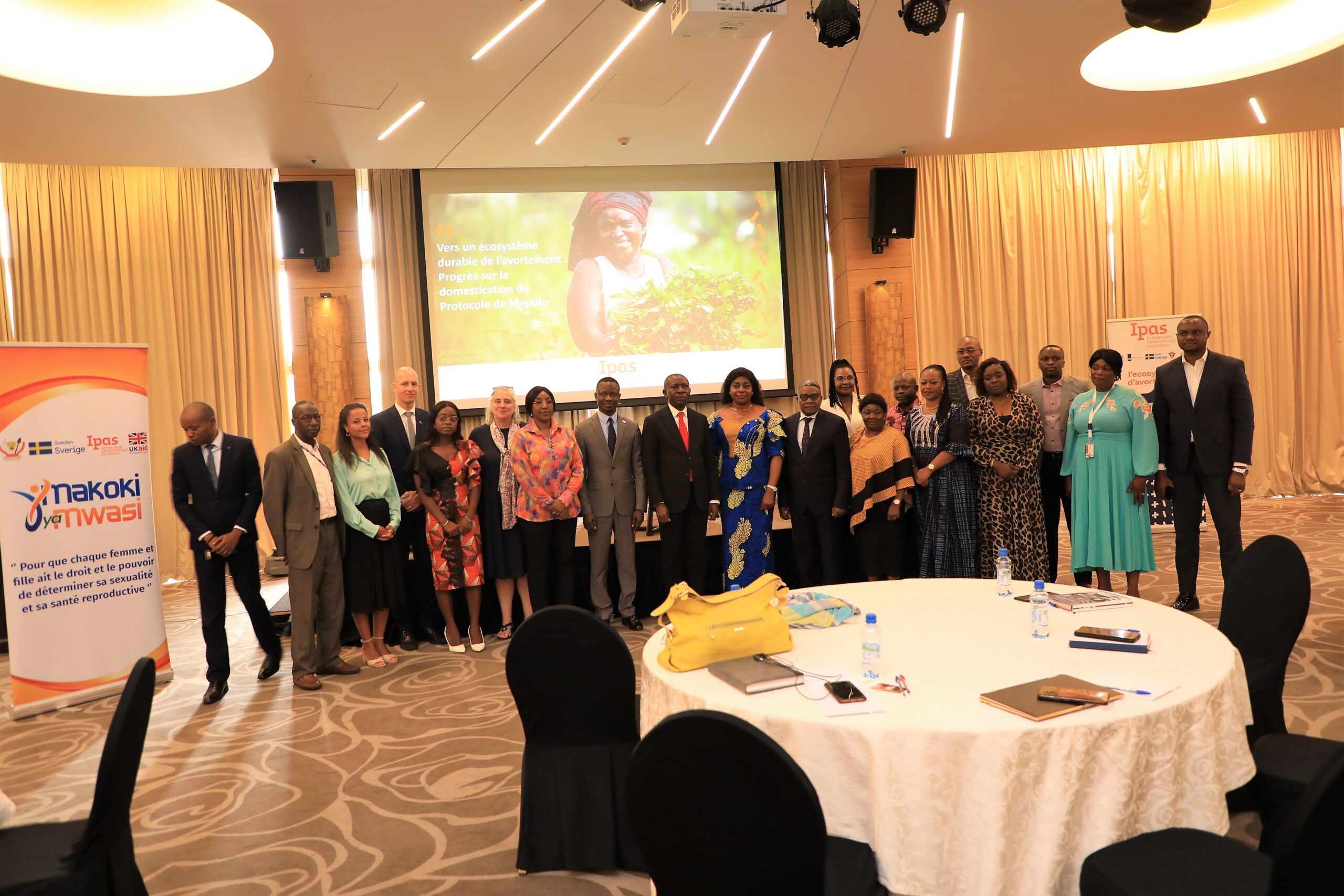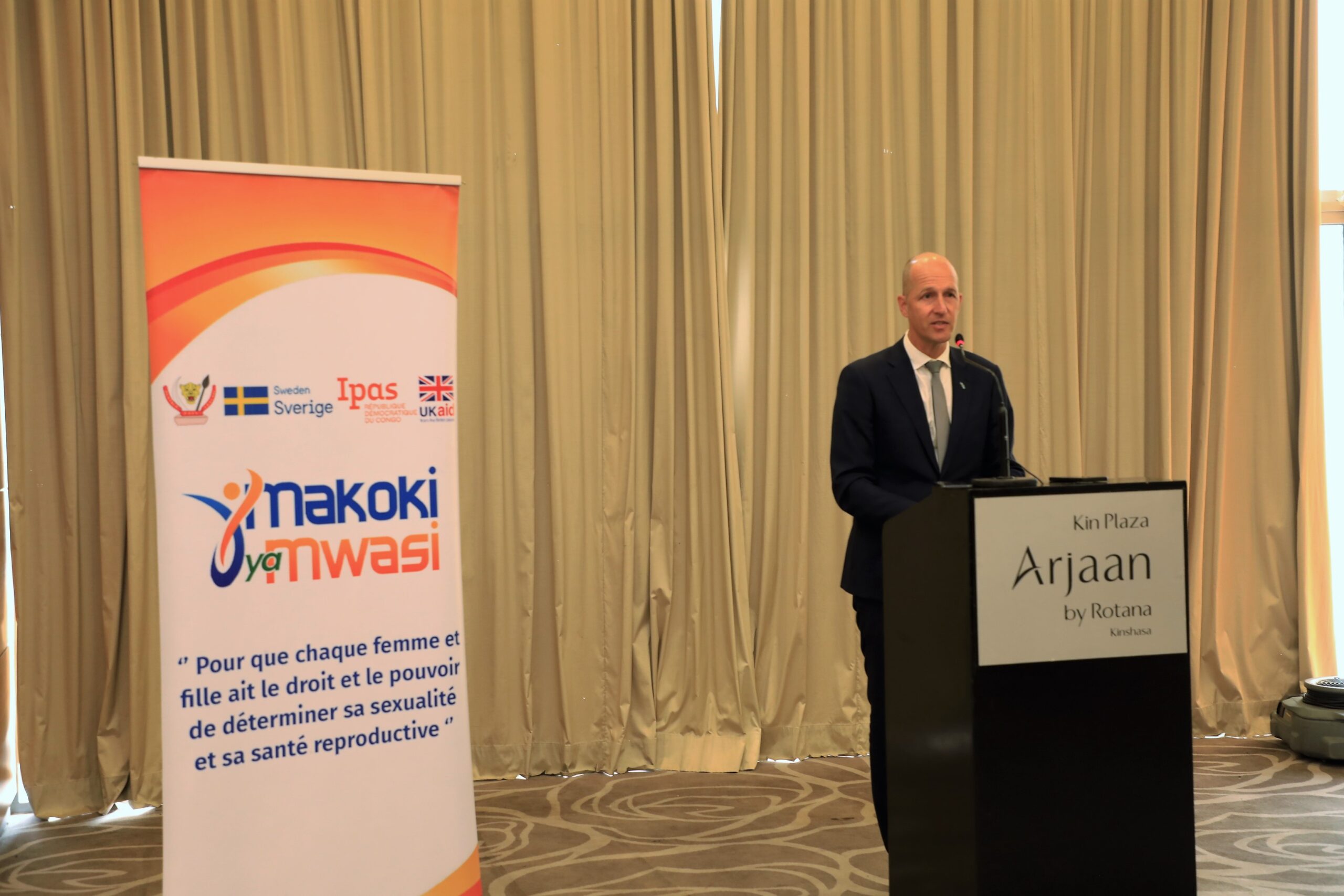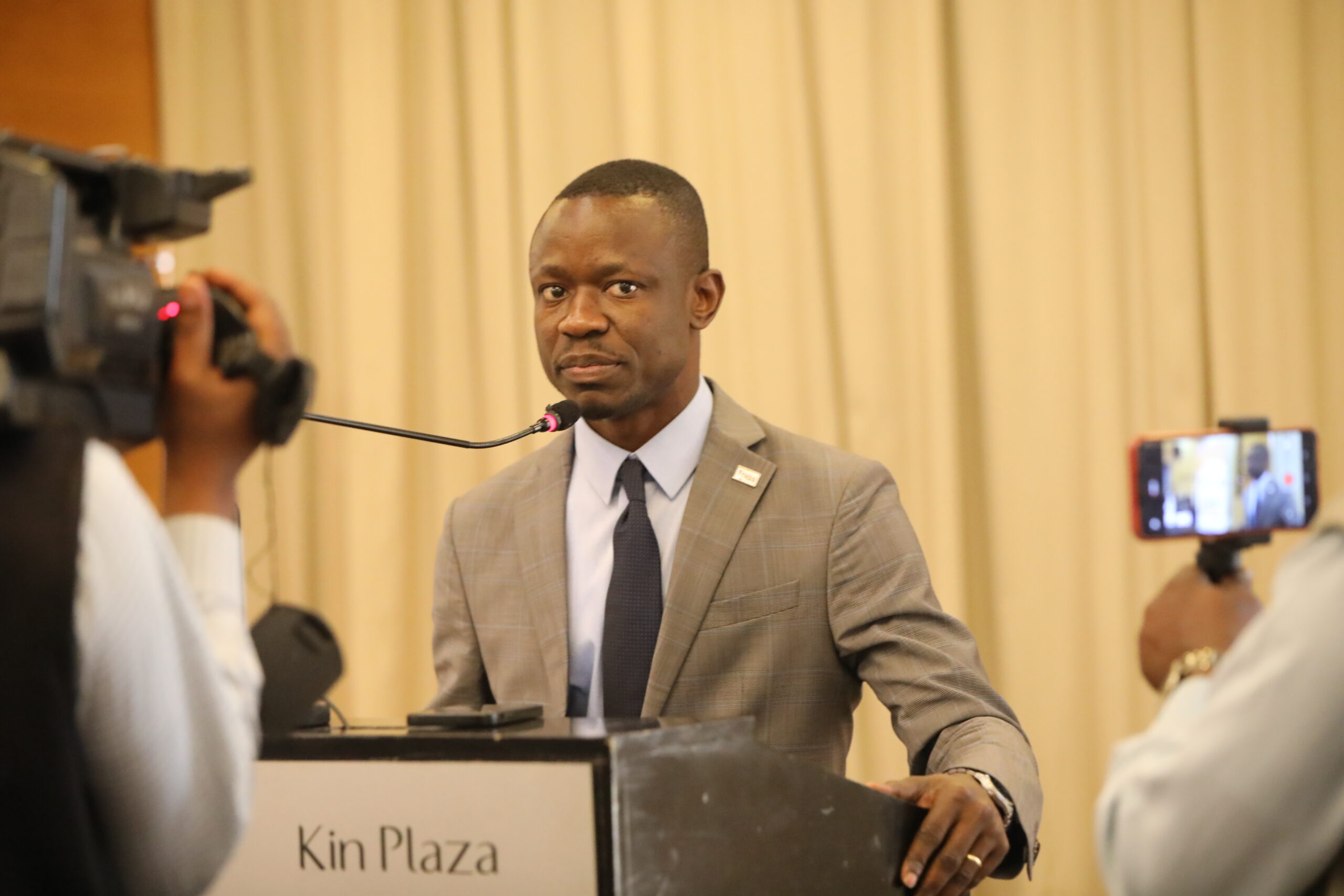This April, the Ministry of Health in collaboration with Ipas Democratic Republic of Congo (DRC), officially launched a study on the “impact of the domestication of the Maputo Protocol in the Democratic Republic of Congo”. The study evaluates implementation progress of the Maputo Protocol in terms of commitment, political leadership, policy change, and its impact on women and girls’ abilities to access safe abortion care in the African continent.

The Maputo Protocol, which contributes to women’s economic and political empowerment as well as their health and well-being, is the first pan-African treaty to expressly recognize abortion as a human right in specific circumstances: sexual assault, rape, incest, fetal abnormalities endangering the life of the fetus, and when continued pregnancy endangers the woman’s life or mental and physical health. Access to safe abortion is critical to every woman and girl’s right to control their bodies, without discrimination.
Over five years, Ipas has been supporting government and in-country stakeholders in implementing the Maputo Protocol — training government officials, policymakers, community leaders, women, and youth champions to enhance an enabling environment for women to access safe abortion services.
Fifteen years after the Maputo Protocol was ratified and published in the Official Gazette of DRC, it still faces challenges in implementation due to the lack of transposition into national legislation, the inconsistent interpretation of the national legal framework by courts and healthcare systems and the low access to accurate information about safe abortion care.

At the ceremony, Ipas DRC director Dr. Jean-Claude Mulunda presented on progress of efforts aiming to transform the Maputo Protocol into provision of services for women.

“The Embassy of Sweden is very proud of the partnership with Ipas DRC. A lot of progress has been made since 2018 and we are very proud to support this research on the implementation of the Maputo Protocol that will help us co-designing the next steps to sustaining the abortion ecosystem in the DRC,” said Joachim Beijmo, head of development cooperation at Swedish Embassy in DRC.
This ceremony gathered different stakeholders of the study, namely the Government officials, representatives of the Embassies of Sweden, Canada, and Belgium (Enabel) decision-makers, international organizations, community leaders our key partners Youth Sprint, Afia Mama, SOFEPADI, and the Coalition de Lutte contre les Grosses Non-Désirées (CNGD), the Director of PNSR and many others. The event aimed at presenting the research and its impact on the lives of Congolese women in relation to Sexual and Reproductive Health Rights, exploring the opportunities after this research on the Maputo Protocol, but also disseminating the apps (Hesperian & Nurse Nisa) to the public.
During the ceremony, CNGD, YouthSprint, a youth coalition created by Ipas, the First President of the Kwilu Court of Appeal, as well as the Director of PNSR, constituted as a panel explaining in turn their contribution to domesticating the Maputo Protocol.
In the Democratic Republic of Congo, where the maternal mortality rate is one of the highest in the world at 847 per 100,000 live births, unsafe abortion is the 2nd leading cause of maternal mortality (17%). Unsafe abortions contribute to maternal deaths and have consequences for women’s health and social conditions.
Improving access and quality to safe abortion would thus counteract unsafe abortions. This strategy will reduce maternal morbidity and mortality. When women have access to safe abortion, the quality of the abortion service is assured, and the number of abortion-related deaths and complications decreases.

“Our goal in conducting this research on the impact of the domestication of the Maputo Protocol is to not only assess the progress made so far but also to move beyond current policies. We want to look ahead to the next few years and identify the basis on which we can work together with government, partners, and donors to strengthen women’s bodily autonomy and agency,” said Dr. Jean-Claude Mulunda, Ipas DRC Country Director.

